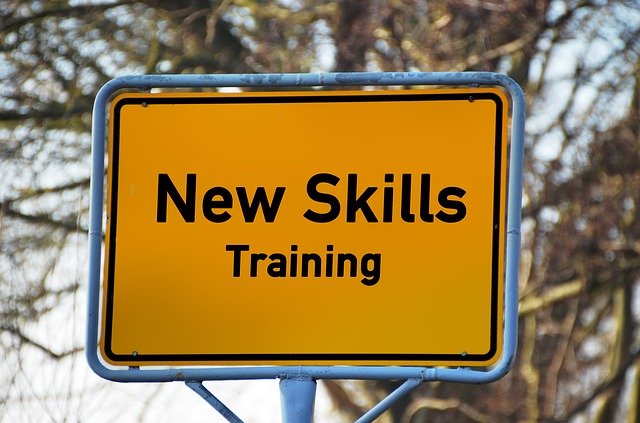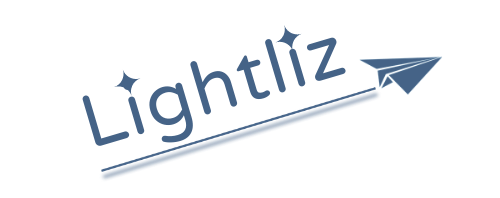Work takes up about 50% of our lives. So, if you don’t enjoy what you do, you may find life harder than those who genuinely love their jobs. You might be thinking, “I don’t know how to choose the right career for me.” Well, most people don’t.
I was at the same place as you seven years ago. But I did something revolutionary that made me discover my purpose and choose my career path. Since then, what I do no longer looks like work but more like a hobby.
Do you want to know what I first did? Well, I began by asking myself the following seven questions.
Disclaimer : The information provided in this site is for educational purposes only, and it is not a substitue for professional advice. The article may contain affiliate links. See the full disclaimer for more details.
- Ask Yourself These 7 Questions To Start Walking Down the Right Career Path
- 1. What Are My Interests?
- 2. Do I Spend Most of My Time Outdoors or Indoors?
- 3. What Are My Skills?
- 4. What’s My Personality?
- 5. What Are My Strengths and Talents?
- 6. How Much Income Would I Like to Make?
- 7. What Training and Education Do I Need?
- Final Word
Ask Yourself These 7 Questions To Start Walking Down the Right Career Path
1. What Are My Interests?
What you enjoy doing when you’re free provides insight into the professions that would be fulfilling, satisfying, and fun.
To discover your interests, you may want to ask yourself:
What hobbies occupy most of my time?
What you enjoy doing when you’re free provides insight into the professions that would be fulfilling, satisfying, and fun.
To discover your interests, you may want to ask yourself:
2. Do I Spend Most of My Time Outdoors or Indoors?
Do you like spending most of the time at the beach during summer, hiking, biking along some of the bumpiest terrains in the neighborhood, kayaking, fishing, or scuba diving?
Well, if you’re an outdoor person, you may be a good fit for high-paying careers such as:
- Landscape architect
- Atmospheric scientist
- Geoscientist
- Environmental engineer
- Agricultural engineer
- Astronomer
- Zoologist
- Hydrologist
- Agriculture and food scientist
- Surveyor
- Conservation scientist
On the other hand, if you are an indoor person, chances are you enjoy face-to-face communication, working behind a desk, growing your network, having private space, and managing time.
Aptly put, you’re cut out for the office setting. The office could be company-based with other employees or home-based where you work alone.
That said, you may find the following positions appealing:
- Programmer
- Accountant
- Nurse
- Dentist
- Pet sitter
- Transcriptionist
- Data entry clerk
- Graphic designer
- Web designer
- Virtual assistant
- Web developer
- Network administrator
- Technical writer
3. What Are My Skills?
Every career requires two types of skills: hard skills and soft skills.

Hard Skills
Hard skills refer to the abilities you possess that enable you to execute job-specific responsibilities and duties. You can acquire hard skills through academic courses or vocational training.
But that’s not all. You can also acquire hard skills on the job.
What’s more, hard skills are typically focused on particular tasks and processes like equipment, tools, and software.
Types and Examples of Hard Skills and Their Matching Careers
Technical Skills
These skills entail specialized expertise and knowledge in IT, science, and engineering.
Examples of technical skills include:
- CAD
- CRM Platforms
- Linear regression
- Web: CSS, HTML, Javascript
- Prototyping
- Troubleshooting
- Multivariate analysis
Examples of jobs that require technical skills include IT manager, software developer, database administrator, information security analyst, data scientist, computer network architect, and more.
Computer Skills
These skills include using hardware and software, from general and essential, to highly specialized.
Examples of Basic Computer Skills
- MS Office (Word, PowerPoint, Excel, Outlook, OneNote, and Access)
- Google drive
- Spreadsheets
- Typing
- Web
- Social media
- Database management
- Graphics
- Presentations/Slideshows
Examples of careers that require computer skills are big data engineer, database administrator, web developer, computer software engineer, applications architect, pharmacist, receptionist, teacher, web designer, realtor, salesperson, graphics designer, etc.
Analytical Skills
These skills involve gathering, analyzing, interpreting, and presenting data. Regardless of the job you want, the recruiter may award you bonus points if you demonstrate your data analysis skills.
Here are analytical skills to include on your resume:
- Forecasting
- Research
- Data presentation
- Data mining
- Resource management
- Reporting
- Diagnostics
- Creativity
- Data engineering
- Theorizing
If you’re an analytical person, you may consider careers, such as accountant, criminologist, data scientist, data engineer, economist, business analyst, cyber security analyst, software engineer, and more.
Other common hard skills include writing skills, marketing skills, design skills, language skills, management skills, and project management skills.
Pursue training that aligns with your interests and personality. The type of hard skills you learn determine the career you’ll do. Also, list your best hard skills on the resume.
Soft Skills
Soft skills refer to the non-technical skills that influence your overall performance at the workplace. They are also known as core skills or common skills.
You already possess soft skills from your work experience or school. But, you can develop more non-technical skills at volunteer activities, school, work, and job-related training programs.
According to a LinkedIn report on Global Talent Trends, 89% of employers say whenever they don’t hire a candidate; it typically boils down to a lack of soft skills.
Best Colleges conducted a recent study that showed 50% of working Americans apply soft skills more frequently in their jobs.
According to the latest Future of Jobs Report by the World Economic Forum, the soft skills with increasing demand by 2025 include:
- Analytical thinking and innovation
- Critical thinking and analysis
- Active learning
- Creativity, originality, and initiative
- Problem-solving
- Leadership and social influence
- Resilience, flexibility, and stress tolerance
- Reasoning and ideation
- Emotional intelligence
- Persuasion and negotiation
- Service orientation
In a nutshell:
Regardless of the career you choose, prioritize soft skills, such as problem-solving, critical thinking, and self-management. That’s what your potential recruiter is looking for.
4. What’s My Personality?
Personality refers to how you feel, behave, and think. It can be a crucial part of your profession, which is why it’s essential to consider it when thinking about the future.
- Do you prefer leading or following others?
- Do you like competing or cooperating with others?
- Are you comfortable working alone or as part of a group?
- Do you enjoy helping people or empowering them to do things independently?
- Do you thrive with routine and structure, or are you an artistic and creative individual?
- Are you a thinker that pays attention to ideas or a doer that prefers taking action?
Understanding your personality will reveal your strengths and talents and your careers.
That leads us to the next section.
5. What Are My Strengths and Talents?
Chances are you demonstrated various strengths and talents from your childhood days that make you unique from anyone else.

Here’s a big secret: The things you do exceptionally well from an early age are a huge reflection of the career you should choose.
Ask your friends, teachers, family, boss, or mentors if in doubt.
Next, make a list comprising of all your strengths and matching careers.
To make your list-building a piece of cake, here are the common strengths and the careers they align with.
Analytical
Opt for professions that require you to arrive at decisions after evaluating facts, research findings, data, circumstantial evidence, and tangible evidence.
Prominent career fields include:
- Accounting
- Law
- Finance
- Computer technology
- Journalism
- Business management.
Command
Do you enjoy being bossy and a little authoritarian? You can’t fit into occupations that require you to follow other people’s orders or be subservient blindly.
That said, consider fields, such as:
- Politics
- Management
- Law
- Sales
- Entrepreneurship
- Medicine
- Sales
Communication
Is talking to people your strong suit? You better start considering careers that’ll let you do lots of talking.
Examples of careers that involve talking are:
- Stand-up comedy
- Teaching
- Consulting
- Broadcast journalism
- Politics
- Acting
- Motivational speaking
- Professional storytelling
- An organization’s spokesperson
Helping Others/Service
Does serving others give you ultimate satisfaction? If you enjoy volunteering for your school, church, or community organization, the question of ‘how to find the right career for me’ should be easy to answer.
Here are the options to explore:
- After graduation, dedicate about two years to serving the country or community. You could join entities like AmeriCorps, Volunteers in Service to America, or Teach for America (TFA)
- Volunteer your medical service for one week or month in a small town without a nurse or doctor or in a rural clinic attending to migrant workers.
- Consider becoming a medical missionary or joining Doctors Without Borders.
- Commit a lifetime of service to a particular ministry in your faith tradition
Discipline
Does everyone praise your ability to keep your word, fight temptations, take care of yourself, set boundaries, clearly define your goals, stay focused, not rely on motivation to perform, avoid a quick fix, or beat deadlines?
If any of these traits define you, you’re one of the most disciplined persons on the planet.
Here’s the exciting part: you’re a perfectionist.
Thus, you may want to become a:
- Brain surgeon
- Airplane pilot
- Accountant
- Editor
- Administrative services manager
- Tailor
- Aviation inspector
- Mechanic
- Physicist
- Anesthesiologist
- Architect
- Operations research analyst
- Pathologist
- Auditor.
6. How Much Income Would I Like to Make?

We aren’t saying that money should be your primary motivation, but remember, we all have a dream lifestyle we would like to lead and expenses to take care of. In simple terms, your career directly affects your quality of life.
Are you looking to earn enough money for a fancy car and a lovely house and don’t necessarily anticipate going to work each day?
Or are you OK expressing your passion for doing things you like without caring about financial comfort? Think twice about these two options, because eventually, you’ll have to find a good balance between these two.
7. What Training and Education Do I Need?
Certain professions require that you invest time and money in pursuing education to attain the necessary skills. For instance, you may need to train for at least seven years past college to become a doctor.
Think about the money and time needed to pursue the career as you decide. Can you get the resources to study it to the end?
Final Word
As you figure out ‘how to choose the right career for me,’ know that asking the right questions will set you on the right foot. Consider each of the above questions carefully before deciding your career path. Being honest while answering them could be the key to success.
A deeper level of self-discovery is exploring your life purpose. Finding your core values, interests ambitions and skills can help you specify a meaningful, rewarding career. Here we provide you with valuable self-discovery tools and techniques to help you know yourself better and define your ideal career path.
Shachar is a blogger and sensitive person who worked in a recruitment company and holds a master’s degree in sociology. After years of struggles to find purpose, he made this blog to help others find their purpose more efficiently. He likes to play chess, walk in nature, and take photos in his free time.


